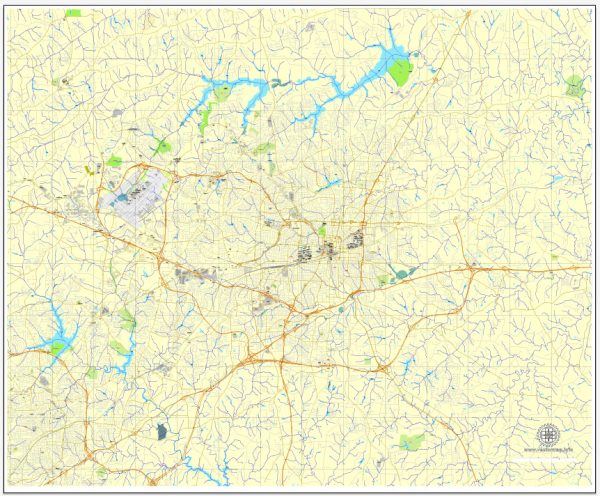Greensboro, North Carolina, has a rich and diverse history that has played a significant role in the broader context of United States history. Here is a brief overview of the city’s historical significance:
- Early Settlement: Greensboro was originally settled in the late 18th century and established as a village in 1808. It was named after General Nathanael Greene, a Revolutionary War hero. The city’s location along major trade routes, including the Great Wagon Road, made it an important crossroads for commerce and transportation.
- Civil War: During the American Civil War, Greensboro served as a significant Confederate supply depot and a site for the manufacture of arms and munitions. It was also the location of a major Confederate hospital. The city was occupied by Union forces in 1865, marking the beginning of the end of the Civil War.
- Civil Rights Movement: Greensboro gained national attention for its role in the Civil Rights Movement during the 1960s. In 1960, four African American students from North Carolina A&T State University initiated the Greensboro Sit-Ins at the Woolworth’s lunch counter, a nonviolent protest against racial segregation that sparked similar demonstrations across the South.
- Education: Greensboro has a strong educational history, with institutions like the University of North Carolina at Greensboro (UNCG), North Carolina A&T State University, and Bennett College playing vital roles in the community. These institutions have contributed to the city’s cultural and intellectual life.
- Industry and Economy: The city’s economy has historically been influenced by industries like textiles, tobacco, and furniture manufacturing. Over the years, the economy has diversified, with a focus on technology, healthcare, and education.
- Cultural Significance: Greensboro is known for its cultural contributions, including hosting the National Folk Festival and its connection to various musicians, artists, and writers. The International Civil Rights Center & Museum, located in the former F.W. Woolworth building, is a prominent historical site that tells the story of the Civil Rights Movement.
- Transportation Hub: Greensboro has been a transportation hub throughout its history. The city’s location along major highways and the presence of Piedmont Triad International Airport make it a key transportation center in the southeastern United States.
- Present-Day Greensboro: Today, Greensboro is a thriving city with a diverse population, a strong business community, and a growing arts and cultural scene. It continues to celebrate its history while embracing the future.
Overall, Greensboro, North Carolina, has a history marked by its contributions to American industry, its role in the Civil Rights Movement, and its continued development as a vibrant and dynamic city in the southeastern United States.



 Author: Kirill Shrayber, Ph.D. FRGS
Author: Kirill Shrayber, Ph.D. FRGS